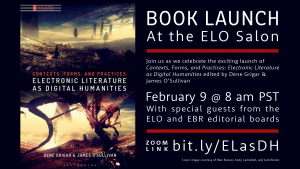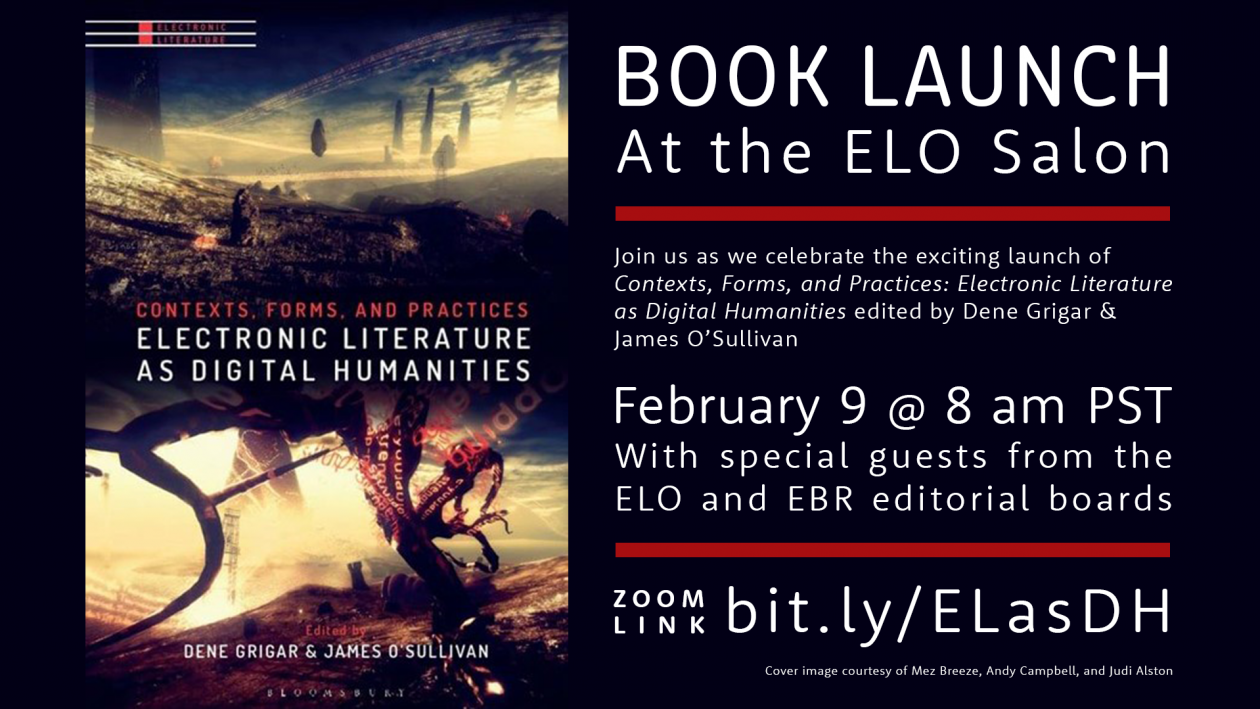The Electronic Literature Organization (ELO) has now established its new headquarters at The Maryland Institute for Technology in the Humanities (MITH) at the University of Maryland, College Park. The move, which has been made possible by sponsorship from MITH, the English department at Maryland, the College of Arts and Humanities, and the University Libraries, was completed this summer.
Neil Fraistat, director of MITH, said of the move: “In moving from UCLA to the University of Maryland, the ELO will provide MITH with a unique opportunity for a truly comprehensive program in the Digital Humanities, one that focuses equally on migrating electronically the cultural artifacts of the past and the production of the cultural artifacts of the future.” Thom Swiss, president of the ELO, added: “The Maryland Institute for Technology in the Humanities (MITH) at the University of Maryland, College Park, is internationally known and, together with the support of its campus partners in this venture, makes for the best possible home for the ELO because of our similar and now collaborative interests and ambitions.”
Founded in 1999 in Chicago, the ELO is a 501(c)(3) nonprofit organization made up of writers, scholars, educators, and technologists dedicated to exploring how computers can be used for literary expression, and how born digital work can use the computer and the network to build on and extend the tradition of literature. Landmark events in the ELO’s short history include:
* The launch of the Electronic Literature Directory, an acclaimed
database-driven resource of information about electronic literature
maintained by authors and visited by thousands of readers;
* Readings of electronic literature and outreach events in Chicago,
New York, Seattle, Boston, Los Angeles, Philadelphia, and Providence;
* The Electronic Literature Awards, which recognized exemplary works
of poetry and fiction and rewarded winners with substantial cash
prizes;
* The State of the Arts Symposium, which united over one hundred
international writers, scholars, and publishers of electronic
literature at UCLA for two days of panels and presentations and
produced hard-copy proceedings; and
* The Preservation, Archiving, and Dissemination (PAD) project’s
publication of two reports, Acid-Free Bits: Recommendations for
Long-Lasting Electronic Literature and Born-Again Bits: A Framework
for Migrating Electronic Literature.
The ELO has an international network of directors, literary advisors,
and members. The organization’s university partners include the
University of Iowa, the University of Illinois Chicago, and the
University of Pennsylvania. After the headquarters of the ELO moves to
Maryland, partnerships with these universities, and the partnership
with UCLA, will continue, as will electronic literature readings,
events, and activities across the country.
The partnership between MITH and the ELO will help both organizations
pursue their related missions. The ELO will work, with MITH’s help, to
further its programs and its impact, both internationally and on the
Maryland campus.



